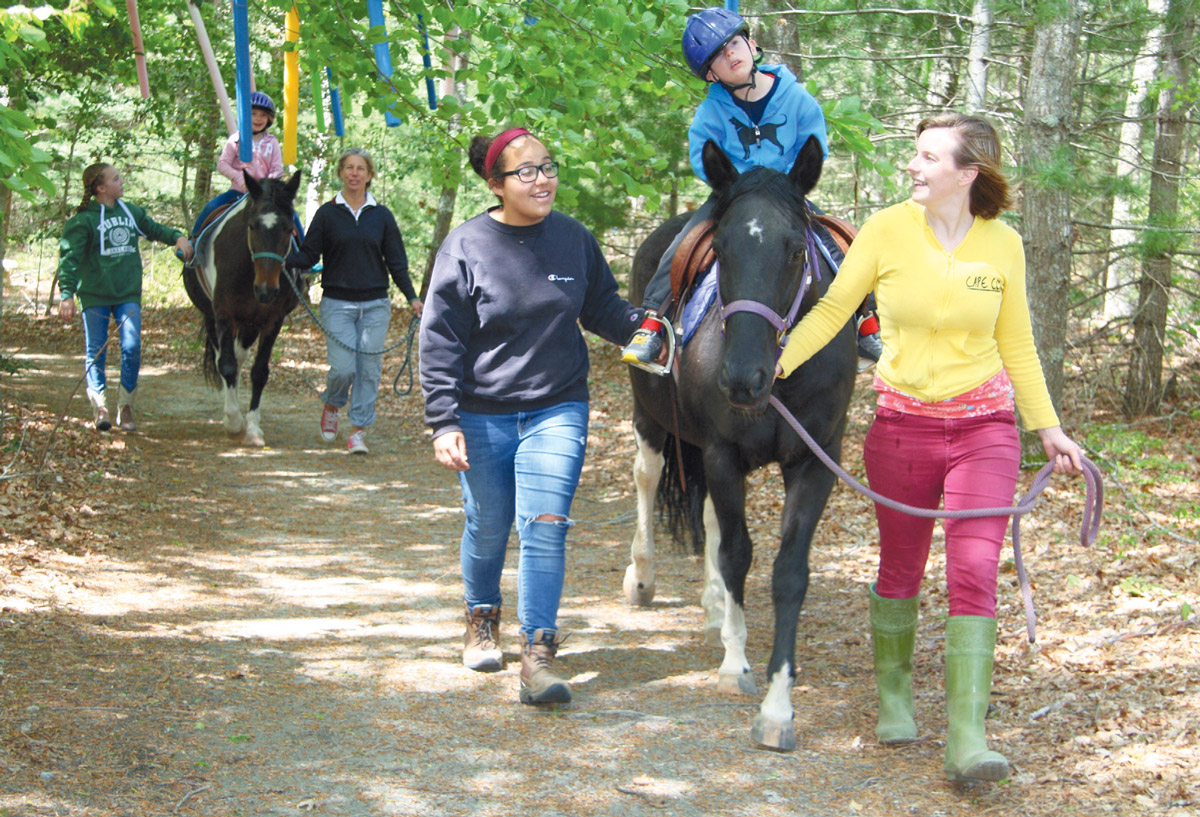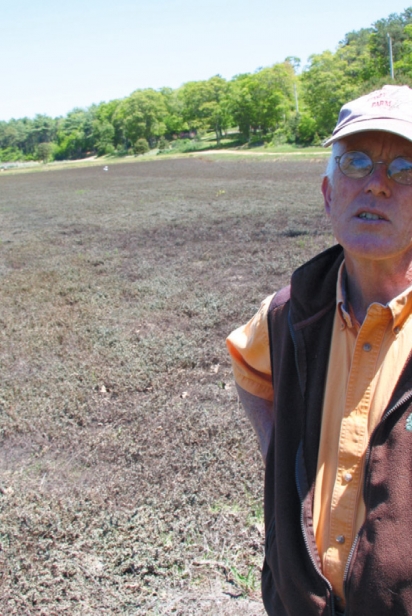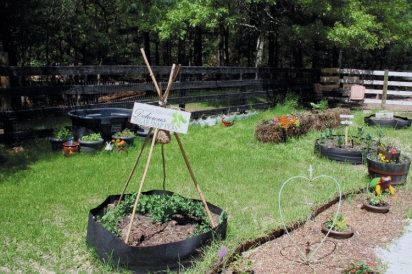A Farm of a Different Color
Cranberry Sunset Farm
There is a farm in Marstons Mills that is unlike any other on Cape Cod. Their yield isn’t quantified in terms of bushels, pecks or barrels. Cranberry Sunset Farm gauges success in levels of improved awareness, increased independence and simple smiles. At Cranberry Sunset Farm, the strawberries picked, the cranberries harvested and the eggs collected are all a means to an end, one in which a wider world is opened up to those who otherwise are trapped within their own, thanks in large part to the rather large teaching assistants…the horses.
The objective of Cranberry Sunset Farm is to improve the quality of life for youngsters with extra needs. Challenging their balance, coordination, vision and hearing to help them become just a bit more independent and more aware of their surroundings, with sensory trails to walk or ride on horseback. Teaching them about food, how it grows and tasting new things. Getting them to move with dance and yoga classes. An education not merely for the kids, but for their siblings and parents as well.
Leslie Ballotti, a registered pediatric nurse, and her husband Jeffrey purchased the farm on Main Street 12 years ago, even before they bought a house in Osterville to make the otherwise New Jersey to Marstons Mills commute much more bearable. “Farm before the house. Got to have your priorities,” Ballotti says. Prior to that, she began to build her stable of “caregivers” in response to an appalling event. When Ballotti returned to the United States after living abroad for ten years with her family, her prized jumping horse did not accompany her, as planned. The day before the journey, the horse was stolen. Ballotti turned to rescuing horses that were neglected, mistreated or destined to be slaughtered. One was even dropped off in the middle of the night with a note attached saying it was for the best for both the horse and owner. Still others were rescued from a “Premarin Farm” where the estrogen from pregnant mares is harvested for a drug that treats the symptoms of menopause. Once they no longer can get pregnant, the mares are slaughtered and the cycle continues with the offspring.
Ballotti always enjoyed sharing her horses with family and friends. She loved the way people’s faces lit up when around the animals. It wasn’t until the autistic son of a friend shouted, “So much fun!” while atop one of the horses that Leslie had her “ah-ha” moment. She knew she could make a real difference in a child’s life. When the farm was purchased, Leslie and her family started with seven horses. They now have 40 between Cranberry Sunset Farm and their year-round home in New Jersey, all of which go through evaluations and training to make sure they have the right temperament to work with kids who have difficulty expressing themselves.
It takes a similar level of examination to find the special kind of person to be able to handle the challenges of working with kids of all ability levels and with horses. Leslie admits there are difficulties in finding the right person for the job. “You’ve got a handicapped kid on a 2000 pound horse,” she says. “You need to be on your game.”
The farm has fewer than ten volunteers on staff, and Ballotti doesn’t have to look far to fill some of the positions at the farm: her four daughters Kara, Kiki, Kendall and Courtney. Ballotti has a simple rule about working at the farm. If you’re under her roof, you work. “Until you’re out on your own, I expect you at the farm every summer,” she states.
When daughter Courtney maintained that she needed to complete an internship this summer, a position of videographer was created for her to chronicle the achievements of the children with the horses. The footage will be submitted to Purdue University as part of a study into the human/horse connection. People who work with animals, horses in particular, know the bond that is formed between species. Purdue has set out to research the relationship, and determine whether it does trigger wellness receptors in the brain. It would go a long way in the fight for funding for such organizations as theirs. “People think it’s just a pony ride,” Leslie laments. It is so much more.
With the limited staff, enrollment is capped at the 70 students that will take part (ten per week) this summer. Teens and young adults enrolled also help out with the manual chores that need to be done around the farm. The sensory trails are filled with objects for the kids to feel and experience. Balls, bells and foam noodles dangle from branches overhead. The kids can touch them as they go by, or the items gently bump into them if they don’t reach out. Either way, there is stimulation that encourages the child to engage with his or her surroundings.
Some of the kids who are enrolled at the farm are on the autism spectrum and can be absorbed in self-stimulatory behavior. Stimming—the repetition of physical movements or noises like hand flapping, rocking, or repeating words or noises—can be reduced or eliminated by providing an alternative stimulation. Nature provides such stimuli everywhere: the breeze on a face, birds singing, a tree root to climb over…are all things that force the kids out of their shells and into the present.
“Nature is constantly asking them to deal with where they are,” states Ballotti. It’s more than simple rides through the trails. Ballotti and her staff ease the kids out of their comfort zones to build upon their skills. They also hold the children accountable for their actions. Ballotti’s daughter Kara, a behavioral analyst, explains, “Manners are very important. We’ll say hello, and won’t let them pass until they respond.” Sometimes it takes waving a hand to get the kids to deal with the interaction of the person in front of them.
What started as an equine therapy center has grown to be so much more. Ballotti has begun to further raise awareness of the world around her students by bringing them into the garden with the garden club that meets on Tuesdays with everyone pitching in to help grow beets, strawberries, celery, parsley, potatoes and more. This teaches them about food, where it comes from and how it’s grown.
“It’s so exciting for them to see things grow!” Ballotti offers. The lessons are also beneficial to the parents as well. One child wanted to try the arugula they had grown, and his mother dismissed the idea by saying he wouldn’t like it. And? “He loved it!” Ballotti laughs.
The group cooks what they’ve grown, and turns the mint and lavender into ice cream. The classroom has grown beyond the fence posts of Cranberry Sunset Farm at times, too. Trips have been taken with parents to the grocery store to learn how to make better choices, and there have even been consultations on how and where to put up a backyard chicken coop. “We now have about twenty families with their own chickens,” Ballotti proudly claims. It follows the mantra she maintains, “Eat local, eat seasonal and eat clean.” Like the rescuing of the horses, this heightened focus on eating clean was born from upsetting beginnings.
Due to Ballotti’s daughter Kara’s development of seizures as an adult, Ballotti began to research what could cause this sudden onset. The investigation into Kara’s diet led Ballotti to earn her master’s degree in nutrition. What she discovered shocked her. “When the USDA came out with their food pyramid in the nineties, the biggest portion was grains,” she says. One doesn’t need to be diagnosed with celiac disease to suffer from the effects of too much gluten as was recommended in that now outdated chart. Coupled with the arrival of genetically modified foods to store shelves around the same time, and Ballotti believes you’ve got a recipe for the explosion of all types of diseases and disorders among children and adults alike.
“Everything has a consequence,” she states. “We don’t know what GMOs do to us.” Her goal is to educate as many people as possible, including schools on the lunch programs they offer. She is, however, a realist. “If I can just reach a few families at the farm…” she reflects. Change must begin somewhere, and where better than the home. Ballotti also understands abstaining is not realistic. As she says, “Can’t we find a compromise?”
As a non-profit organization with rates that are exceedingly low for the kids, Cranberry Sunset Farm is in search of donations and grants to make it more sustainable. Currently, Ballotti’s husband Jeffrey is the sole philanthropist. With the additional support, the farm can hire the one person that can pull things together, a psycho-behavioral and developmental therapist who is trained in equine studies. Again, not such an easy find.
For the first time, the public will be invited to Cranberry Sunset Farm to learn more about what they do, and what you can do to improve your diet. Ballotti is planning a fall harvest day in late October when guests can walk the trails, pick up some freshly-harvested cranberries from the bog, visit vendors and listen to experts discuss various food and environmental initiatives. There may also be pumpkin carving, “Depending on how many pumpkins we grow,” Ballotti chuckles.
Cranberry Sunset Farm is engaged in what farm manager Peter Dyrness describes as “the last bastion of interactivity between horses and humans without competition—no one is here to win a prize.” Horses communicate on a non-verbal level. Who better to make a connection with someone who struggles to verbalize his or her feelings? A mother, at the sight of her 18-year-old son who climbed aboard a horse and smiled, broke down and cried. As Ballotti tells the story, “She said, ‘I haven’t seen him smile in six years.’”
Dyrness is correct. The gift that Cranberry Sunset Farm brings to people is far greater than any prize.
Cranberry Sunset Farm
1964 Main Street, Marstons Mills
860-930-4301 / cranberrysunsetfarm.com







